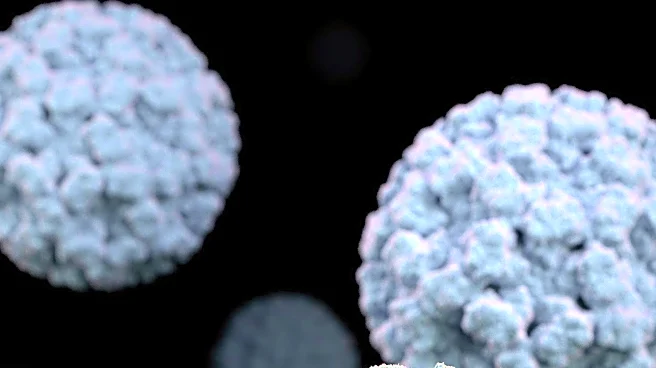What's Happening?
A recent analysis of patient records indicates that mRNA COVID-19 vaccines may boost the immune response to cancerous tumors when administered soon after starting immunotherapy. The study, involving nearly
1,000 patients with advanced skin and lung cancers, found that those who received the vaccine within 100 days of starting immune checkpoint inhibitors lived nearly twice as long as those who did not. The findings, presented at the European Society for Medical Oncology Congress, suggest that mRNA vaccines could play a role in enhancing cancer treatment by optimizing immune responses.
Why It's Important?
The potential for mRNA vaccines to enhance cancer immunotherapy represents a significant advancement in cancer treatment. By potentially doubling survival rates, these vaccines could offer a new strategy for improving the effectiveness of existing cancer therapies. This development could lead to the creation of mRNA vaccines that act as a 'master key' to awaken the immune response in cancer patients, providing a universal approach to cancer treatment. The findings highlight the transformative potential of mRNA technology in medicine, extending beyond its initial use in COVID-19 vaccines.
What's Next?
A clinical trial is set to begin before the end of the year to confirm the study's findings. If successful, this research could lead to the development of mRNA vaccines specifically designed to enhance cancer immunotherapy. The trial will explore the potential for mRNA vaccines to act as a beacon, guiding immune cells to attack tumors more effectively. This could represent a new frontier in cancer treatment, offering hope to patients who have limited options and improving survival rates across various cancer types.










